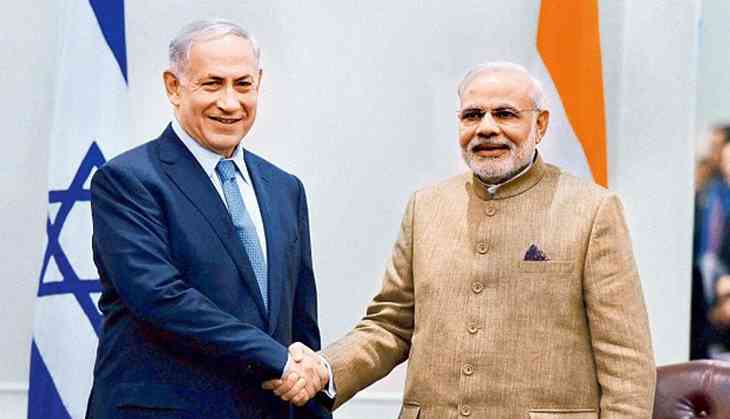Bilateral upgrade: Why Modi's visit to Israel is a significant milestone

When Prime Minister Narendra Modi lands at Ben Gurion Airport in Tel Aviv on 4 July, he will be received by Israeli Prime Minister Benjamin Netanyahu himself.
This gesture which the Israeli PM reserved only for very few dignitaries, most recently Donald Trump and the Pope, makes it clear just how much significance Israel is attaching to the visit.
It is the first ever visit by an Indian Prime Minister to Israel and marks 25 years of diplomatic ties between both countries.
As Indian ambassador Pradeep Kapoor told a newspaper, ”The visit is a milestone by itself, this is a coming out of the relationship between the two countries”.
Diplomacy at work
“There is lots the world can learn from Israel,” Modi wrote to Israelis, who subscribe to his newsletter. “Some of the focus areas during my visit are agriculture, disaster management, economic ties and people-to-people relations,” he wrote spelling out the agenda of his visit, trying to reinforce that this visit will not be merely about security and defence cooperation.
"Next week, the Indian Prime Minister, my friend, Narendra Modi will arrive in Israel, This is a historic visit to Israel. In the 70 years of the country's existence, no Indian Prime Minister has ever visited and this is further expression of the state of Israel's military, economic and diplomatic strength," Netanyahu reportedly said.
Modi will not be travelling to Ramallah, the Palestinian capital, unlike President Pranab Mukherjee, and other high level diplomatic visits in the past - a clear message that India has officially dehyphenated its relations with Israel and Palestine.
Although, Mahmoud Abbas, the President of the Palestinian Authority was in New Delhi recently, with South Block trying to reiterate the message that India has not abandoned the Palestinian cause.
Israelis helped India with arms in the wars of 1962, 1965 and even 1971 beside the Kargil War in 1999. With friendly relations with Muslim monarchies of the Gulf, and Iran, India had been reluctant to come out of the closet about its relationship with Israel until Narendra Modi took oath.
Indian outreach to Gulf countries has been phenomenal in the recent past something which was visible on the Republic Day where Abu Dhabi’s Crown Prince was invited as the Chief Guest or Saudi King bestowing the country’s top honour on PM Modi earlier.
Moreover, BJP and the Rashtriya Swayamsevak Sangh (RSS) have been advocates of deepening ties between India and Israel.
'We are here to partner with you'
That is the simple but strong message which India will deliver to Israel, as Indian Ambassador Kapoor put it in his interview to a newspaper.
During his three-day visit, the Prime Minister will be taken to an agricultural farm as India has been looking to Israel for new innovation to enhance the yield of crops and to see how Israelis manage water. Israel may also partner in the cleaning up of the Ganga, another flagship mission of the NDA government on which it is struggling to deliver.
The two countries are expected to sign agreements in the field of science and technology and space as well, beside enhancing cooperation in the water and agriculture sectors. The visit will also see both countries find more ways to strengthen people-to-people contact, air connectivity and investments.
Israel is among the top three defence suppliers with India recently buying the Barak 8 missile defence system. Another contract for Spike anti-tank missiles is also said to be in the pipeline.
Meanwhile, both countries see terrorism as the biggest threat, and this is where the focus of the visit is going to be, apart from other sectors.
PM Modi said as much in a Facebook post. "I will have in-depth talks with Prime Minister Netanyahu on the full spectrum of our partnership and strengthening it in diverse fields for mutual benefit. We will also have the chance to discuss major common challenges like terrorism," he wrote.
Two countries are also looking to enhance ties in the field of cyber security, an area which has emerged as the new threat. Netanyahu also spelled this out during his address at the Tel Aviv University.
"There is going to be a visit of Prime Minister of India, one of the most important Prime minister's of the world, with the third largest economy in the world growing very fast. He wants close cooperation with Israel in many fields - water, agriculture, health and also in cyber. And he has a good reason to do so," he reportedly said.
First published: 3 July 2017, 21:09 IST
